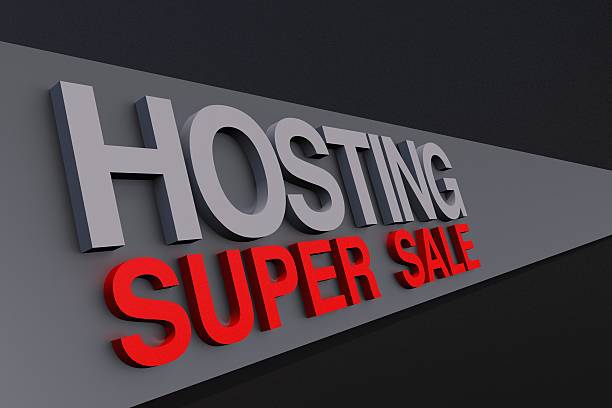If you’re running or planning to launch an online store that generates six figures in revenue , your hosting plan isn’t just a technical detail — it’s a business-critical decision .
A poorly performing host can cost you sales, damage customer trust, and even impact your brand reputation. Meanwhile, the right hosting solution ensures:
- High uptime
- Fast load speeds
- Scalable infrastructure
- Strong security
In this guide, we’ll walk through:
- Why hosting matters at scale
- The different types of hosting and when to use them
- Key performance benchmarks to look for
- Real-world hosting recommendations for high-revenue stores
Let’s dive into how to choose the right hosting plan for a 6-figure online store .
Why Hosting Matters More Than You Think
When you’re selling products online, every second counts.
Your hosting provider determines:
- How fast your site loads (直接影响转化率)
- How often your site goes down (影响销售和客户信任)
- How well your store handles traffic spikes (Black Friday, holiday sales, etc.)
- How secure your transactions are (保护客户数据和支付信息)
According to Google, a one-second delay in page load time can reduce conversions by up to 20% . For a store doing $100K+ annually, that’s potentially $20K in lost revenue per year — all from something as simple as slow hosting.
Types of Hosting and When to Use Them
Not all hosting plans are created equal — especially when you’re dealing with high-traffic, high-revenue eCommerce stores.
Here’s a breakdown of common hosting types and their suitability for scaling businesses.
Shared Hosting – Best for Startups (Not Scaling Stores)
What It Is: Multiple sites share resources on the same server.
Why It Fails at Scale:
- Limited bandwidth and resources
- No control over server configuration
- Poor performance during traffic surges
Avoid if you’re aiming for or already hitting 6 figures.
VPS Hosting – Mid-Sized Growth, But Not Enterprise-Level
What It Is: Virtual Private Server gives you dedicated resources within a shared environment.
Why It Works Temporarily:
- Better control than shared hosting
- Improved performance and uptime
- Suitable for stores doing $30K–$75K/year
Use while growing — but migrate before hitting $100K/year .
Cloud Hosting – Ideal for Scalability and Performance
What It Is: Distributed servers handle traffic across multiple locations.
Why It Works for 6-Figure Stores:
- Auto-scaling for traffic spikes
- Built-in redundancy and failover
- Global CDN support improves speed worldwide
Best For: Stores expecting growth, international customers, or seasonal surges.
Dedicated Hosting – Full Control, High Cost
What It Is: A single server dedicated to your store.
Why It Works:
- Maximum performance and customization
- Advanced security features
- Full root access for developers
Downside: Higher cost and complexity — best for brands with in-house dev teams.
Managed eCommerce Hosting – Plug-and-Play Powerhouse
What It Is: Fully managed solutions tailored for platforms like Shopify Plus, WooCommerce, and Magento.
Why It Works:
- Optimized for your platform
- Includes built-in caching, CDN, and support
- Handles updates, security, and backups
Best For: Business owners who want performance without tech headaches.
Key Features Every 6-Figure Store Needs
To support a high-revenue online business, your hosting must offer these essential features:
Fast Page Load Speeds (<2 Seconds)
Speed is directly tied to conversion rates and user experience.
Look for hosts offering:
- SSD storage
- HTTP/2
- CDN integration
- Caching layers (object caching, page caching, Redis, Varnish)
99.9%+ Uptime Guarantee
Even minor downtime can mean hundreds or thousands in lost sales.
Aim for hosts with proven reliability and SLAs (Service Level Agreements) of 99.95% or higher .
Strong Security Protocols
With more money comes more risk.
Ensure your host includes:
- Free SSL certificates
- Malware scanning
- Firewalls and DDoS protection
- Regular backups
- PCI compliance
These features protect both your data and your customers’ trust.
Global Reach With CDN Support
If you sell internationally, a strong CDN (Content Delivery Network) ensures fast load times for global shoppers.
Look for hosts integrated with:
- Cloudflare
- Akamai
- Amazon CloudFront
- Fastly
Scalability for Traffic Surges
A 6-figure store likely sees traffic spikes during promotions, holidays, or social media boosts.
Make sure your host offers:
- Auto-scaling
- Elastic resource allocation
- Staging environments for testing changes safely
Developer Tools & Integrations
If you have custom themes, apps, or third-party integrations, your host should support:
- Git version control
- SSH access
- Docker and staging environments
- API-level monitoring tools
This helps maintain performance and avoid costly errors.
Hosting Recommendations Based on Platform
Different platforms have different hosting needs. Here’s what to look for based on your setup.
Shopify Plus
Shopify Plus uses Shopify’s native cloud infrastructure , so you don’t need to manage hosting yourself — but you can enhance performance with add-ons.
Recommended Add-Ons:
- Cloudflare for global CDN
- Rewind Backup for peace of mind
- MageStack for advanced performance tuning
Pro Tip: Upgrade to Shopify Plus’ Advanced plan for better analytics, multi-region support, and expert guidance.
WooCommerce (WordPress-Based)
WooCommerce thrives on managed WordPress hosting — especially as you grow.
Top Picks for WooCommerce:
- WP Engine – Excellent for performance and security
- Kinsta – Google-powered managed hosting with developer tools
- Cloudways – Flexible cloud hosting with full control
Ensure your host supports:
- PHP 8.0+
- MySQL/MariaDB
- Redis or Memcached caching
- WooCommerce-specific optimizations
Magento / Adobe Commerce
Magento demands robust infrastructure due to its complex architecture.
Top Hosting Providers for Magento:
- Nexcess – Officially recommended for Adobe Commerce
- A2 Hosting – Turbo servers improve performance
- AWS Lightsail – For fully customizable setups
- Google Cloud Run – For scalable headless commerce
Look for hosts offering:
- Elasticsearch
- Redis
- Varnish caching
- Multi-node deployment
BigCommerce
BigCommerce is another hosted platform — but premium stores benefit from enhanced performance tools.
Recommended Hosting Enhancements:
- BigCommerce Staging Environments
- Bluehost Managed BigCommerce Plans
- Cloudways for hybrid setups
Support for headless storefronts and multi-channel selling is key at this level.
Frequently Asked Questions (FAQ)
Q: Does hosting really affect a 6-figure store?
A: Yes — hosting impacts speed, uptime, security, and scalability — all critical for high-revenue stores.
Q: What kind of hosting do I need for a $100K+ store?
A: Cloud or managed hosting is ideal. Avoid shared hosting once you reach consistent revenue above $50K/year.
Q: Can I switch hosts after reaching 6 figures?
A: Absolutely — many brands start with basic hosting and upgrade later as they scale.
Q: Do I need a dedicated server?
A: Only if you require full control over your stack. Most stores can thrive on managed cloud or VPS hosting.
Q: How much should I spend on hosting?
A: Aim for $50–$200/month range for managed/cloud options — less than 0.2% of a $100K/year store.
Final Thoughts
Choosing the right hosting plan for a six-figure online store isn’t about picking the cheapest option — it’s about investing in performance, reliability, and long-term growth.
From page speed to security, scalability to support, your hosting choice sets the stage for everything else — including marketing, sales, and customer satisfaction.
Because in the world of online retail, performance isn’t optional — it’s profit .
So take the time to choose wisely — your bottom line will thank you.










